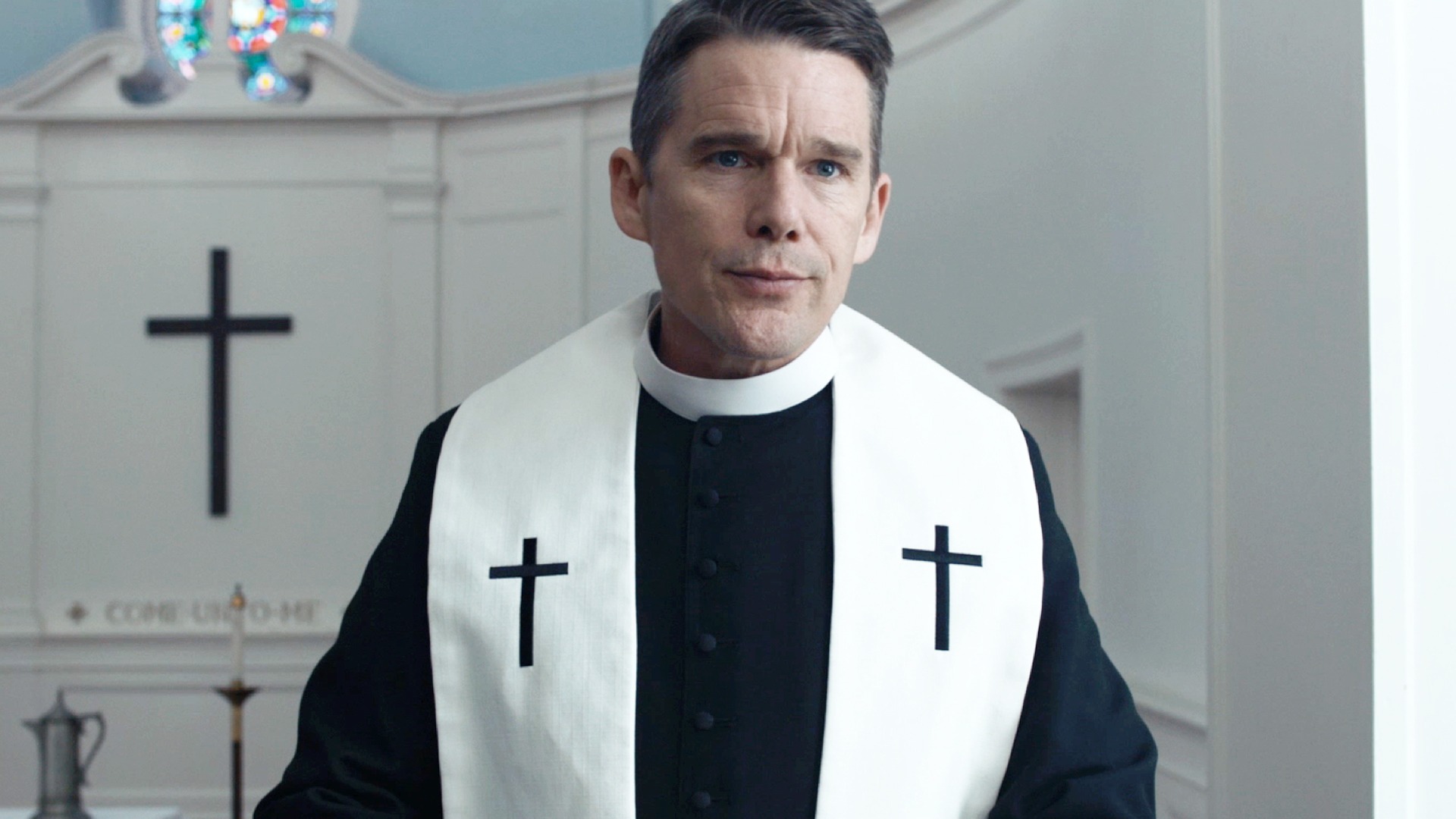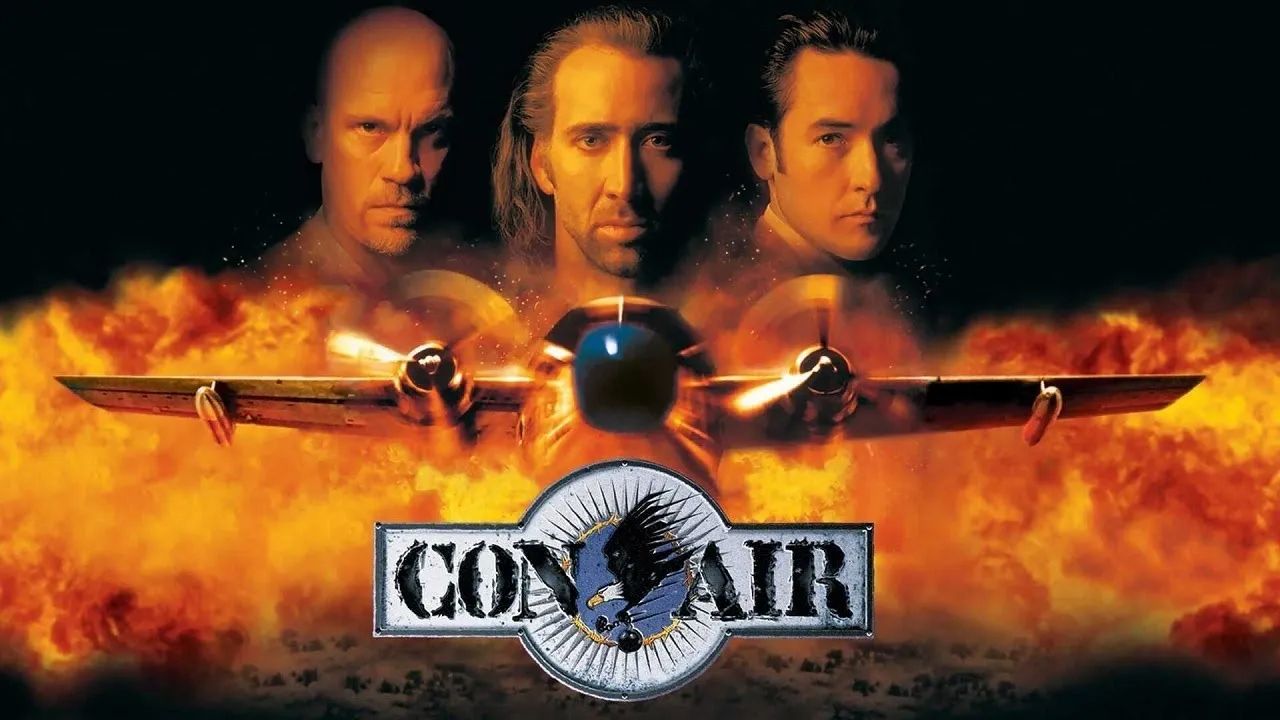First Reformed (2017) is a meditative, unnerving psychological drama that explores the intersection of faith, environmental despair, political paralysis, and personal guilt. Written and directed by Paul Schrader (best known as the screenwriter of Taxi Driver), the film marks a return to transcendental cinema — minimalist, introspective, and deeply spiritual.
With a mesmerizing performance by Ethan Hawke, First Reformed is less a traditional narrative than a slow-burning descent into existential crisis. It challenges its audience to wrestle with questions about purpose, morality, and the spiritual vacuum of modern life.
Reverend Ernst Toller (Ethan Hawke) is a lonely and grieving former military chaplain now serving as the pastor of First Reformed Church, a small, historic Dutch Reformed chapel in upstate New York. The church is more a tourist stop than a place of worship — overshadowed by the megachurch Abundant Life, which funds it.
Toller leads a quiet, ascetic life, battling physical illness and drinking heavily. He journals obsessively, documenting his deteriorating faith and his regret over encouraging his son to enlist in the Iraq War — a decision that led to the boy’s death and the end of Toller’s marriage.
His routine is disrupted when a young parishioner, Mary (Amanda Seyfried), asks him to counsel her husband Michael, a radical environmental activist plagued by despair over climate change. Michael believes that bringing a child into a dying world is immoral. After a tense conversation with Toller, Michael takes his own life, leaving behind a suicide vest.
This event ignites a transformation in Toller. He becomes obsessed with environmental degradation, corporate hypocrisy (particularly the influence of polluters funding churches), and his own moral failure. As he prepares for the church’s 250th anniversary ceremony — to be attended by politicians and business elites — he spirals further into radical isolation, questioning whether violence is a legitimate form of protest… or even redemption.
At its core, First Reformed is about a crisis of faith — personal, spiritual, and political. Toller is not just doubting God’s presence; he is doubting humanity’s right to survive in a world we continue to poison. The film raises profound, uncomfortable questions:
-
Can religion remain relevant in an age of ecological collapse?
-
Is despair a sin?
-
Is activism — even violent action — a moral imperative when the world is on fire?
Toller’s descent into fanaticism mirrors the classic Schrader motif of the "God’s lonely man" — a man so isolated by grief and guilt that he turns inward until something radical breaks.
The film also critiques modern Christianity's complicity with capitalism, especially through the figure of Pastor Jeffers (Cedric Kyles), who encourages moderation and obedience over truth. The church becomes a symbol not of salvation, but of polite denial.
Ethan Hawke delivers a masterclass in restraint and controlled emotion. His portrayal of Toller is filled with quiet desperation — a man holding onto civility as everything around and within him decays. The performance is internal and tortured, with every flicker of expression conveying volumes.
Amanda Seyfried, as Mary, provides the spiritual counterbalance to Toller’s despair. She is not naïve, but she remains tethered to the idea of love as salvation. Her quiet strength and gentleness play a crucial role in the film’s emotional climax.
Schrader draws heavily from the aesthetics of Bresson, Tarkovsky, and Bergman — long takes, static compositions, minimal movement, and a 4:3 aspect ratio that creates a sense of confinement. The camera doesn’t chase emotion; it observes it.
The stark cinematography by Alexander Dynan captures a cold, desaturated world — all grays, whites, and bleakness. The church interiors are austere, echoing the purity of faith and the hollowness of Toller’s existence.
Despite its stillness, the film builds tension like a thriller — not through action, but through spiritual unease. One scene — a surreal, gravity-defying flight of imagination between Toller and Mary — breaks with the film’s realism in a way that is jarring and deeply poetic.
The ending of First Reformed is as ambiguous as it is emotionally explosive. As Toller prepares to kill himself with the suicide vest during the anniversary ceremony, he sees Mary arrive at the church — a symbol of purity, hope, or perhaps salvation.
In a shocking moment, he rips off the vest, wraps himself in barbed wire (a possible Christ metaphor), and is then embraced and kissed by Mary in a scene that breaks with the film’s somber realism.
The screen cuts to black.
Is this final moment a fantasy, Toller’s dying hallucination? Or is it a moment of spiritual transcendence, where love breaks through despair? Schrader offers no easy answers — but suggests that even at the brink of annihilation, human connection may offer redemption.

First Reformed (2017) is a bold, challenging, and profound film that confronts modern anxieties with theological depth. It doesn’t offer comfort — instead, it reflects our own questions back at us. In an age of ecological and moral collapse, it dares to ask: What do we stand for? What can save us — if anything?
Anchored by Ethan Hawke’s powerful performance and Schrader’s visionary direction, First Reformed is a slow-burning revelation — as unsettling as it is unforgettable.



-1751271843-q80.webp)
-1751514849-q80.webp)

-1751269361-q80.webp)